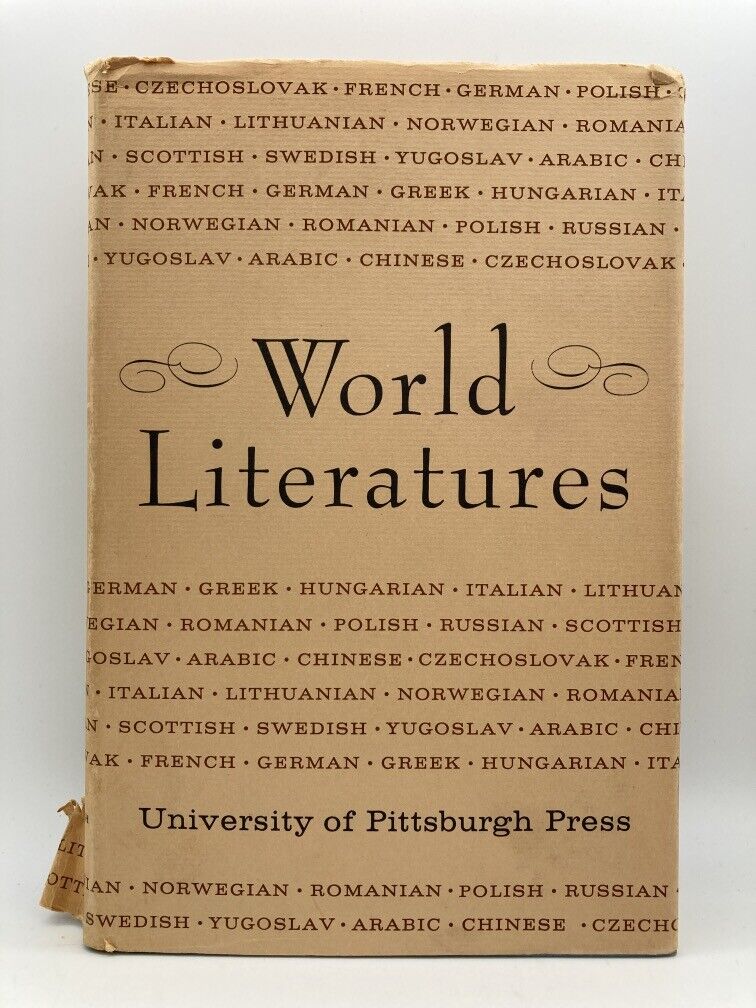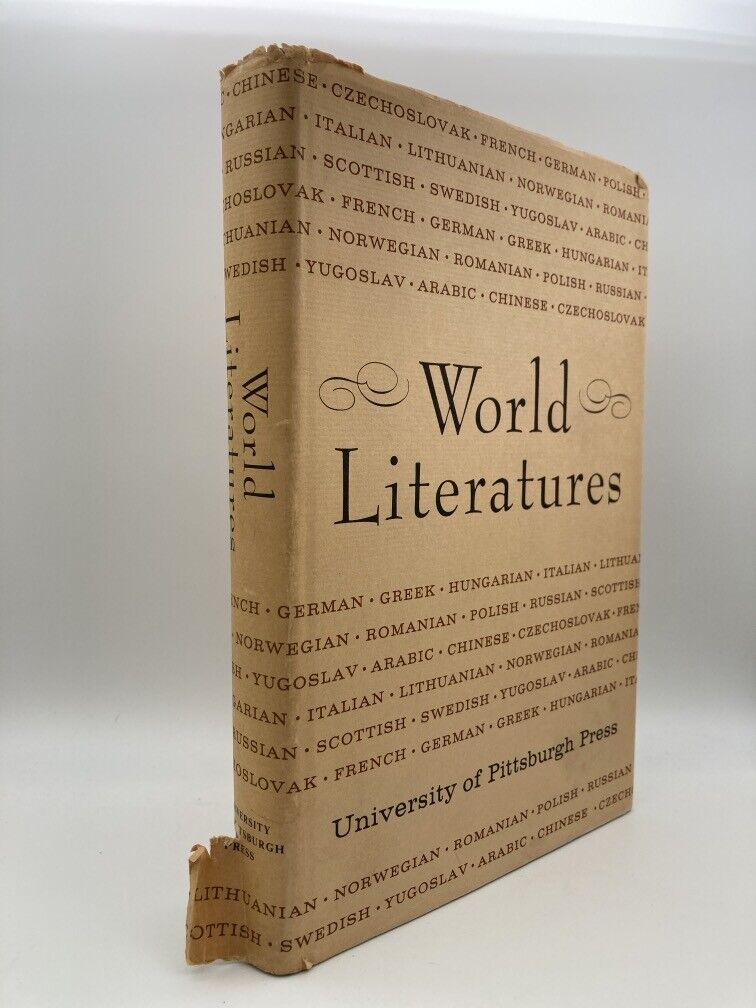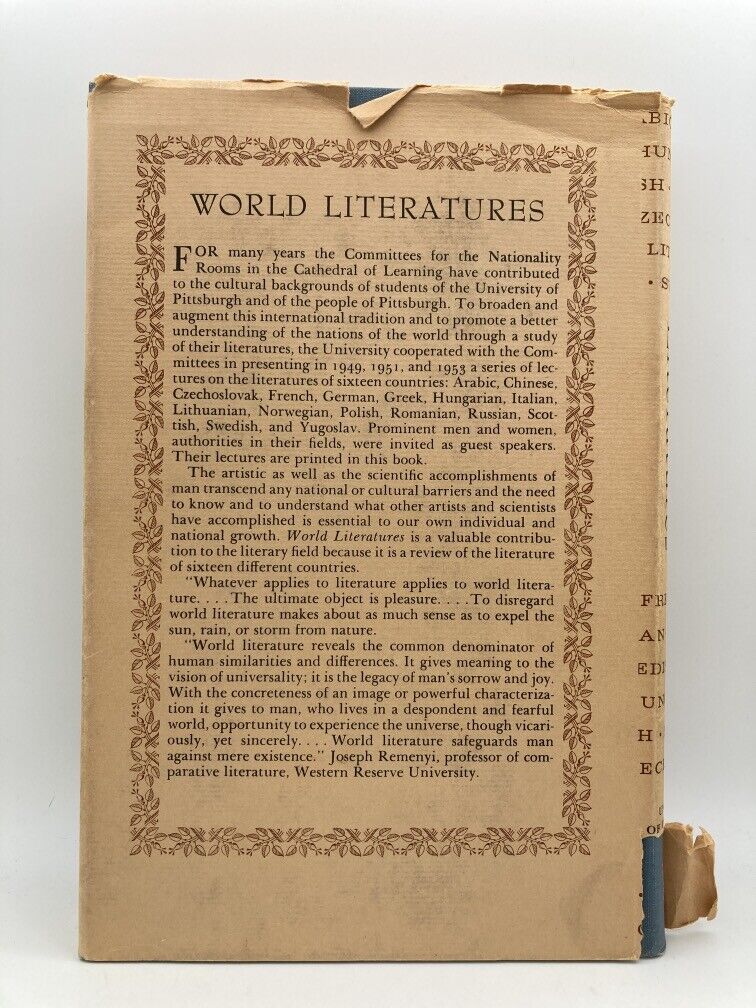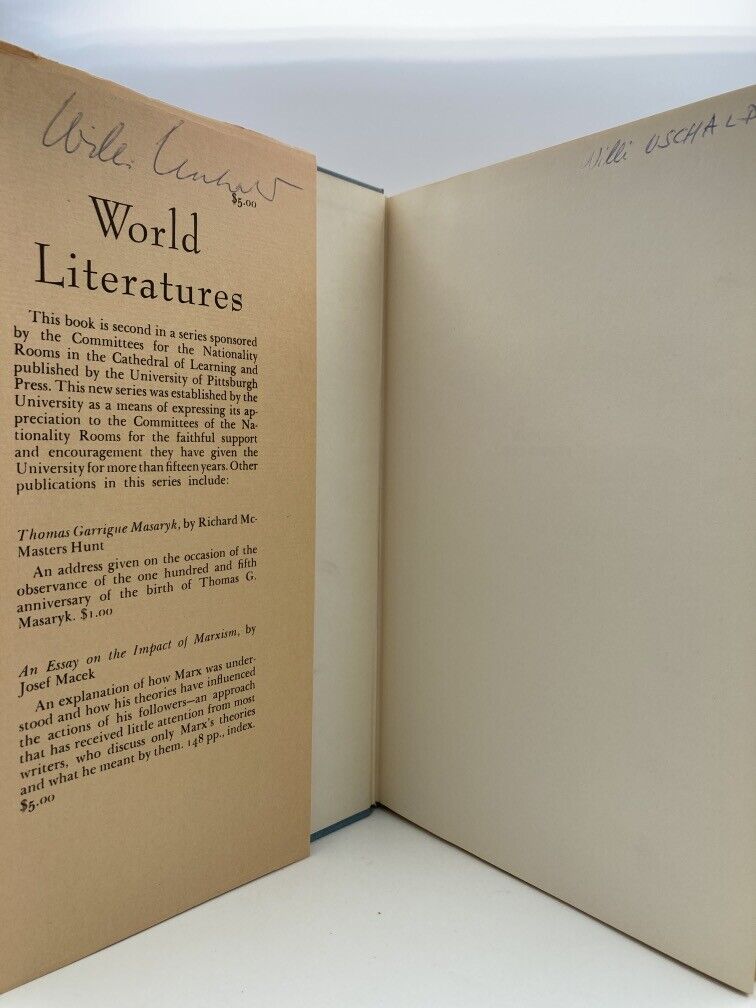World Literatures
World Literatures
Couldn't load pickup availability
Condition: Very Good
World Literatures. First Edition 1956. University of Pittsburgh Press. Hardcover book in very good condition. Binding is square and tight. Most pages are clean with no writing or highlights -- a few have light underlining in pencil. Front page has previous owner's name in ink. Dust jacket is fair condition. It has wear and tears along edges, one significant tear at bottom of spine, and previous owner's name in ink on inside front flap. Dust jacket now wrapped in clear cover.From back of dust jacket:
For many years the Committees for the Nationality Rooms in the Cathedral of Learning have contributed to the cultural backgrounds of students of the University of Pittsburgh and of the people of Pittsburgh. To broaden and augment this international tradition and to promote a better understanding of the nations of the world through a study of their literatures, the University cooperated with the Committees in presenting in 1949, 1951 and 1953 a series of lectures on the literatures of sixteen countries: Arabic, Chinese, Czechoslovak, French, German, Greek, Hungarian, Italian, Lithuanian, Norwegian, Polish, Romanian, Russian, Scottish, Swedish, and Yugoslav. Prominent men and women authorities in their fields were invited as guest speakers. Their lectures are printed in this book.
The artistic as well as the scientific accomplishments of man transcend any national or cultural barriers and the need to know and to understand what other artists and scientists have accomplished is essential to our own individual and national growth. World Literatures is a valuable contribution to the literary field because it is a review of the literature of sixteen different countries.
"Whatever applies to literature applies to world literatures..The ultimate object is pleasure...To disregard world literature makes about as much sense as to expel the sun, rain, or storm from nature. World literature reveals the common denominator of human similarities and differences. It gives meaning to the vision of universality; it is the legacy of man's sorrow and joy. With the concreteness of an image or powerful characterization it gives to man, who lives in a despondent and fearful world, opportunity to experience the universe, though vicariously, yet sincerely...World literature safeguards man against mere existence." Joseph Remenyi, professor of comparative literature, Western Reserve University.








